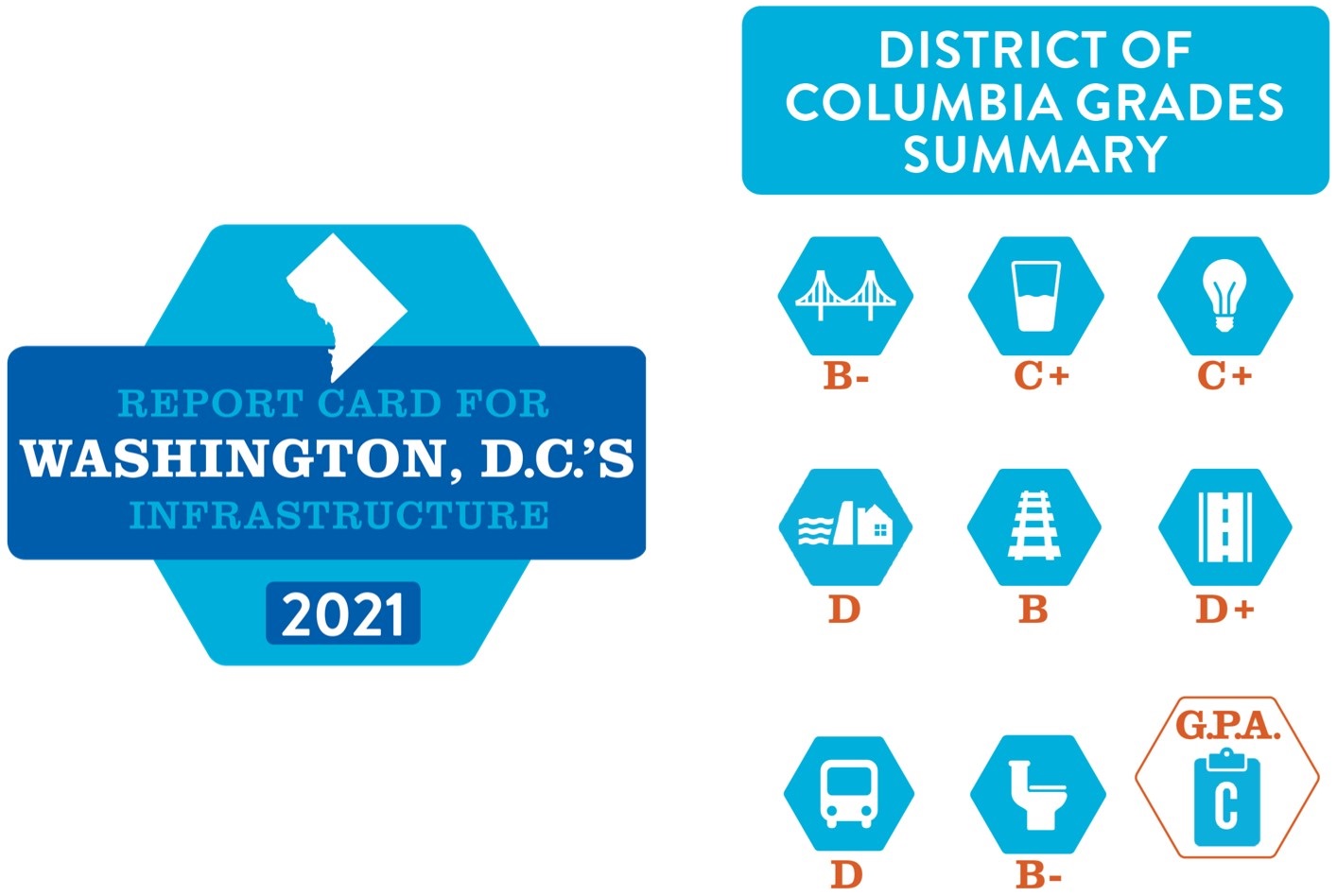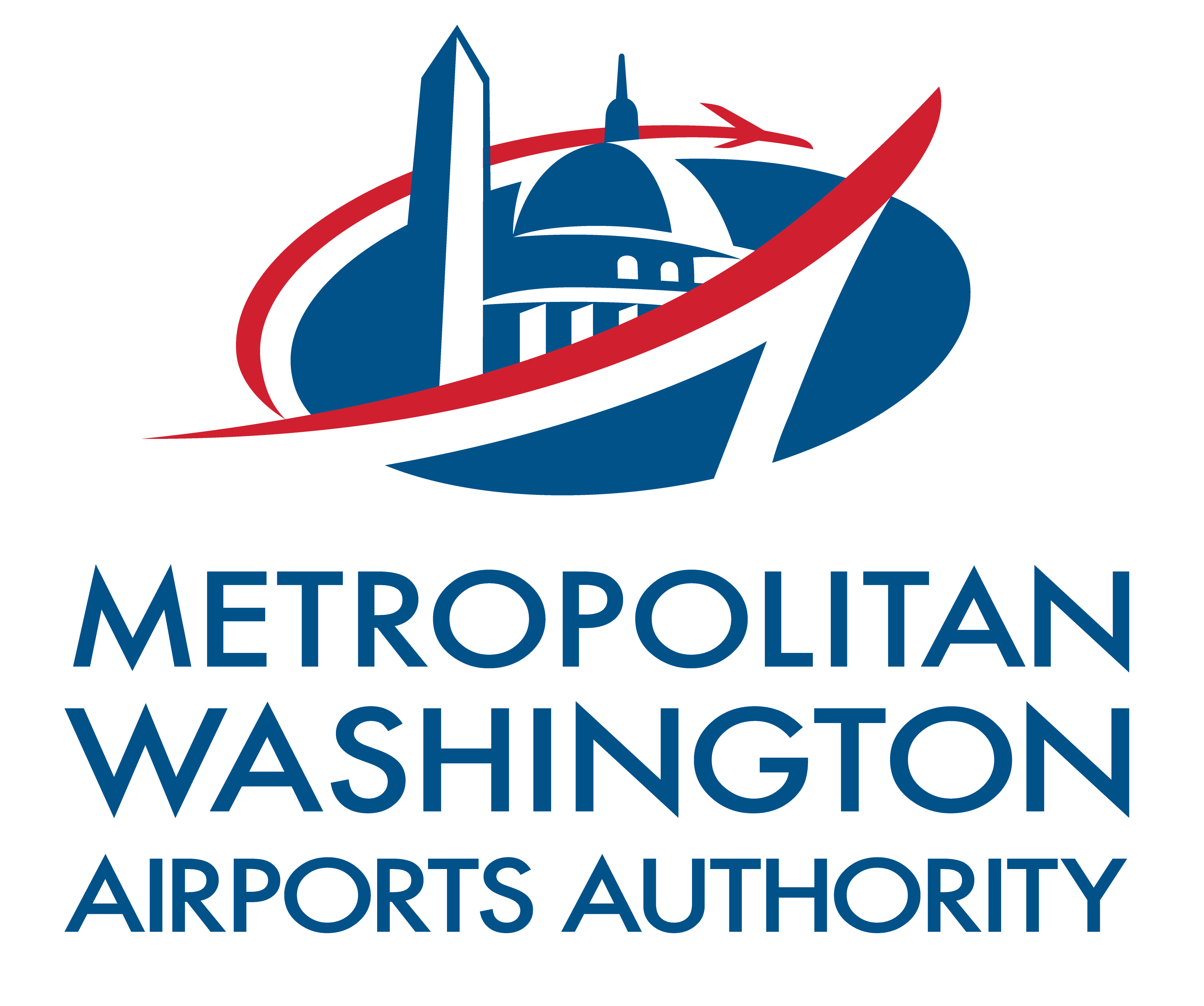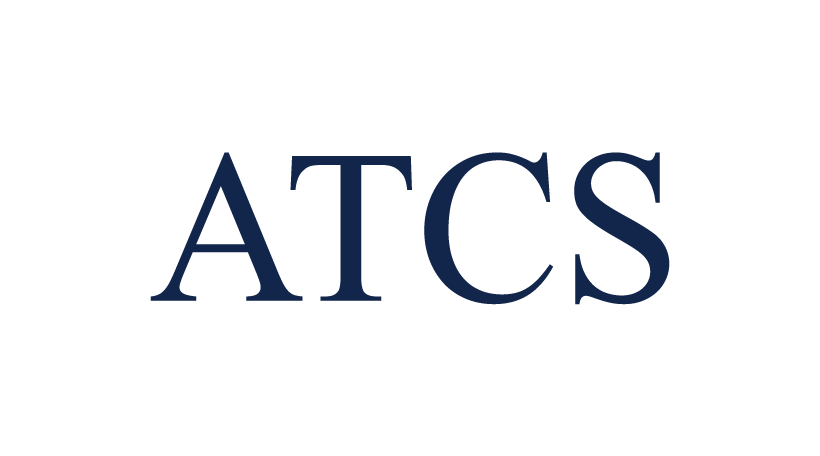Print/Online
Washington Post: DC's infrastructure gets a C-minus — and transportation ranks lowest
Despite recent investments in the District's infrastructure, it continues to crumble — and in the worst state is the city's transportation system. A report card to be released Thursday by the American Society of Civil Engineers gives the city a C ...
WTOP: Report card gives DC infrastructure a C-minus
A report card says the District's infrastructure is in slightly better shape than that of the rest of the nation, but that the condition and congestion of the roads is costing each person who drives in the city plenty. The American ...
Roll Call: District's Roads, Transit Score Badly in Engineers' Report
The district's infrastructure is mediocre overall and close to falling into the “at risk” category, according to the group's first “Report Card for D.C.'s Infrastructure.” The District fared better than the national average, but it's nothing to ...
Washington City Paper: Report Card: DC Gets Ds in Levees, Roads, and Transit, Bs in Bridges and Rails
Remediation may be in order: The District is "at risk" of having levees, roads, and transit infrastructure that are "unfit for purpose," according to an area report card released today by the American Society of Civil Engineers. D.C. received a "G.P.A ...
DCist.com: Report: DC's Infrastructure Gets C- Grade Overall, Higher Than The National ...
The state of D.C.'s infrastructure is a grade higher than the national average, despite the city's low-scoring roads, transit system, and levees, according to a report card released today by the American Society of Civil Engineers. The country's ...
TV & Radio Broadcast
American Society of Civil Engineers. on WTOP-DC (Radio) - Washington, D.C.
01/14/2016 05:05:43
... costs best 833 dollars per driver the Washington Post obtained a new study from the American society of civil engineers it gives the District seen minus citing a few well known problems including overly congested roadways and trouble transit system in the District make L.A. WTO the ...
American Society of Civil Engineers. on WTOP-DC (Radio) - Washington, D.C.
01/14/2016 05:33:11
... infrastructure in the nation's capital it's a scene minus that's where the American society of civil engineers there's an annual reports this study obtained by the Washington Post cites a few well known issues safety and financial problems plaguing Metro of a congested roadways researchers say of ...
Civil Engineers. on WJLA-DC (ABC) - Washington, D.C.
01/14/2016 05:16:17
Good Morning Washington @ 5:00
... the report released by a national group of civil engineers evaluates the district's bridges, rails, roads, drinking water, ...
American Society of Civil Engineers. on WRC-DC (NBC) - Washington, D.C.
01/14/2016 06:16:49
News4 Today at 6 (News)
... in d.c. the american society of civil engineers will release its 2014 report card on its infrastructure. the group looks at things like drinking water, waste water, ...
January 20, 2016: This article is the transcript of an interview by a reporter from Georgetown University paper about the Report Card conducted via email with Ranjit Sahai.
What do you feel are the most valuable aspects of a survey such as this one? Why form it in a “report card” format?
The Report Card for D.C.’s Infrastructure is a standardized assessment of D.C.’s infrastructure against eight relevant criteria. Its key value is in its potential to influence a change in public policy so the downward spiraling trend of infrastructure condition can be reversed. The report card, like a dashboard, is an easy to understand tool for documenting and presenting the outcome of an assessment for both the layman and the expert.
If possible, could you provide more information on how the grades are determined? I have seen on the website that there are a number of factors that go into deciding a grade, but was data collected by surveys, field research, or something of that nature?
The criteria and methodology for determining the grades are documented at this link: http://www.infrastructurereportcard.org/a/#p/about-the-report-card/methodology. The data used for the assessments comes from publicly available sources at this link: http://www.infrastructurereportcard.org/a/#p/state-facts/sources.
How were the recommendations for change compiled in the survey? Again, did you and your team do field research? How did you examine the structures to see what they needed?
Recommendations provided are based on documented industry best practices for the infrastructure component assessed. The information we used was available public records as reported by infrastructure owners or other reputable organizations.
If you could give any advice to the city government or Washington elected officials on how to solve some of these problems, is there anything else that you would suggest? More funding? Other types of support?
The message the Report Card delivers to our elected officials is to invest adequately on infrastructure to safeguard its vital role to our economy, security, recreation, and safety.
Are there any states or areas that you would suggest that Washington, D.C. look to as a model? Any places where we can learn from their infrastructural progress?
D.C. Infrastructure owners and their consultants have the technical know-how to improve infrastructure grades. The problem is not that their model is broken. The problem is that policy makers who allocate available resources have relegated infrastructure needs low on their priority scale. This approach has over decades starved the maintenance and evolution needs of infrastructure. When D.C. has managed to secure needed resources, it has come through with significant improvements as is evident by the improvement in grades for Bridges, Waste Water, Drinking Water, and others. George Hawkins, the General Manager and CEO of DC Water said it well when he noted that he is proud of D.C.'s Drinking Water and Waste Water's C+ grades as those have climbed up from the earlier D- and are better than the national averages, and that the commitment of the DC Water organization is unwavering in its focus on continuing the climb up the infrastructure grading scale.








